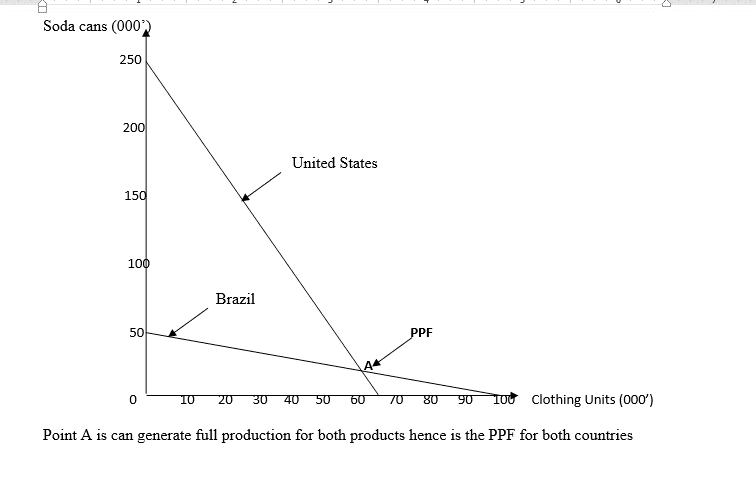Production possibility frontiers
Suppose that there are two products: clothing and soda. Both Brazil and the United States produce each product. Brazil can produce 100,000 units of clothing per year and 50,000 cans of soda. The United States can produce 65,000 units of clothing per year and 250,000 cans of soda. Assume that costs remain constant. For this example, assume that the production possibility frontier (PPF) is a straight line for each country because no other data points are available or provided. Include a PPF graph for each country in your paper. Chapter 5 of the Suranovic text is a good reference for this task.
Complete the following:
What would be the production possibility frontiers for Brazil and the United States?
Without trade, the United States produces AND CONSUMES 32,500 units of clothing and 125,000 cans of soda.
Without trade, Brazil produces AND CONSUMES 50,000 units of clothing and 25,000 cans of soda.
Denote these points on each COUNTRY’s production possibility frontier.
Using what you have learned and any independent research you may conduct, which product should each country specialize in, and why?
To assist in your thinking and discussion, additional questions to consider include:
What is the labor-intensive good?
What is the Marginal Rate of Transformation impact?
What is the labor-abundant country?
What is the capital-abundant country?
Could trade help reduce poverty in Brazil and other developing countries?
Answer preview to production possibility frontiers
APA
559 words


